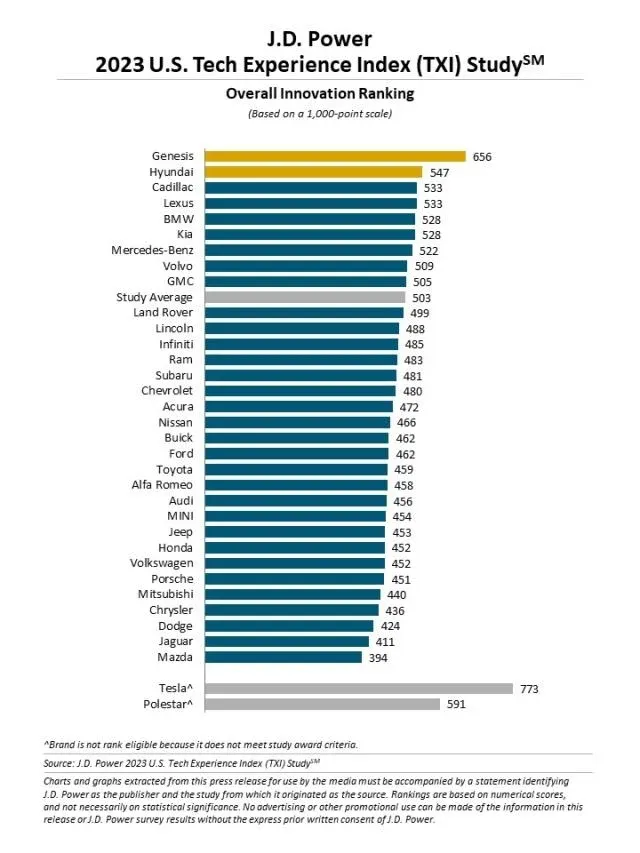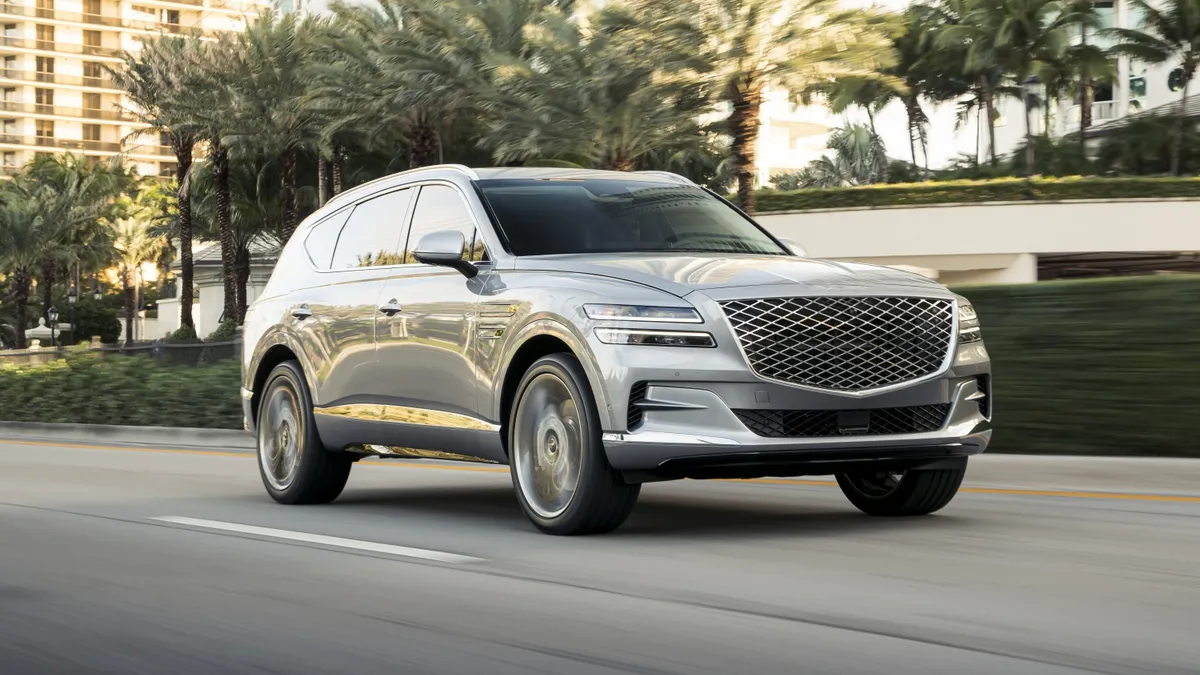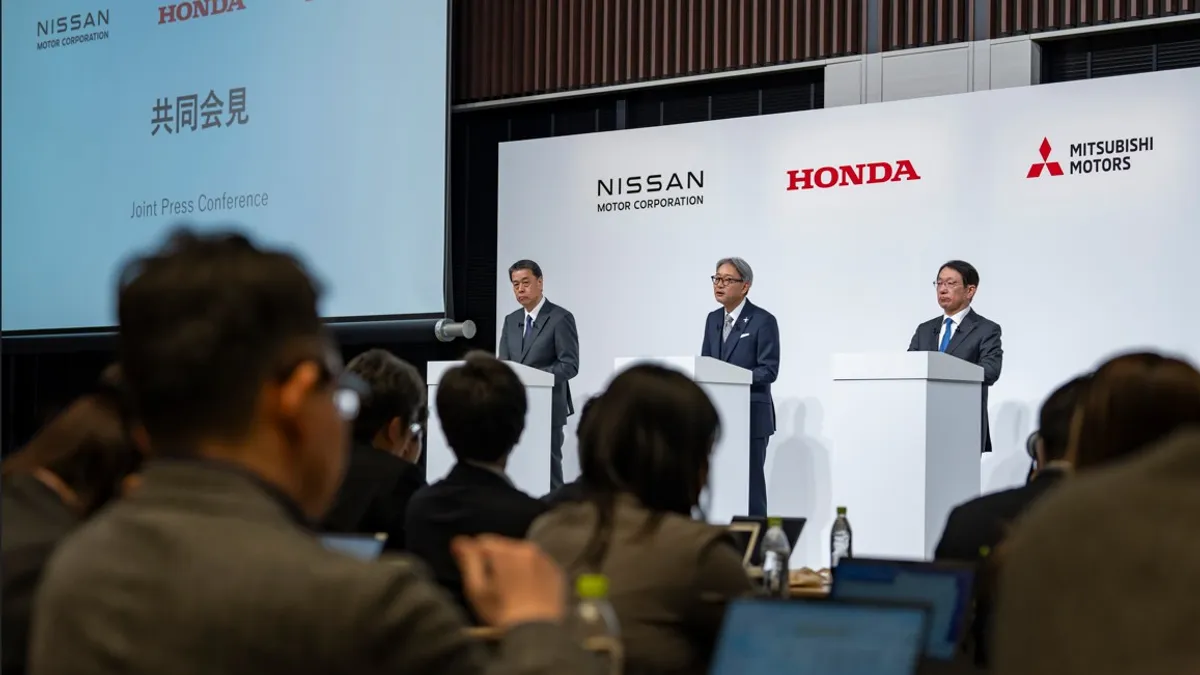Dive Brief:
- Battery-electric vehicle owners have more user experience problems with their vehicle’s technology than owners of similar internal-combustion engine vehicles, a J.D. Power study found last month.
- The survey examined 21 advanced features of comparable BEVs and ICE vehicles, including remote parking assistance and interior gesture controls. It found that BEVs, except Tesla, had more problems than ICE vehicles in 17 categories.
- Hyundai Motor Group performed well in the study. The automaker’s luxury brand Genesis took the top spot overall, while Hyundai and Kia ranked first and second, respectively, among mass-market brands.
Dive Insight:
J.D. Power said the 2023 U.S. Tech Experience Study’s findings were similar to its 2023 Initial Quality Study and 2023 Automotive Performance, Execution and Layout Study, noting that total vehicle problems were 46% higher among BEVs, except Tesla, compared with ICE vehicles.
“In addition, satisfaction is lower for BEVs across 86% of the advanced techs compared with those on ICE vehicles," J.D. Power said in a statement.
The Tesla brand had the highest score among those surveyed, but J.D. Power did not include it in the rankings because it did not meet the study’s award criteria.

Kathleen Rizk, senior director of user experience benchmarking and technology at J.D. Power, said in a statement that while BEVs from traditional automakers frequently offer advanced technologies to compete with new entrants like Tesla, manufacturers must provide consumers with a great experience.
“Innovation through a strong advanced tech strategy is crucial for all vehicle manufacturers, especially those working to build their reputation in the electric vehicle space,” she said. “Success will be dependent on those manufacturers that can execute flawlessly, while ensuring the user experience is the same for those who are tech savvy and those who are not.”
The latest study found that new electric brands like Lucid, Polestar and Rivian are significantly more innovative than most traditional automakers. But nearly all of them have more tech-related problems than the premium segment as a whole.
“Innovation and tech offerings are high for new manufacturers, but they are not providing a problem-free experience,” J.D. Power said.
In addition, J.D. Power found that new car shoppers aren’t demanding biometric features like fingerprint readers, facial recognition or direct driver monitoring because they don’t find them helpful.
New vehicle owners are also using some safety and advanced driver assist systems less than they had previously, with automatic emergency braking (-4%), safe exit assist (-3%) and automatic emergency steering (-3%) experiencing notable year-over-year declines, according to the study.
“While usage rates are still relatively high, small declines across several technologies is a worrying sign that reinforces the need for automakers to remain diligent on providing a positive customer experience so that trust and perceived feature usefulness are not negatively affected,” J.D. Power said.
Still, BEV owners like plug-and-charge technologies that make it easier to use public EV chargers by streamlining the charging and payment processes, with 72% of owners saying they want the technology in their next vehicle.
“Plug and charge is well executed across most manufacturers and vehicle owners say that it is a much-appreciated feature,” J.D. Power said.














